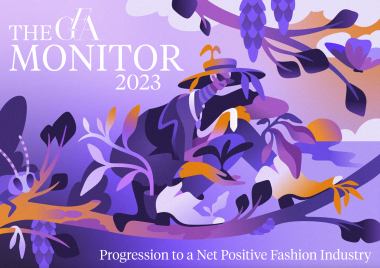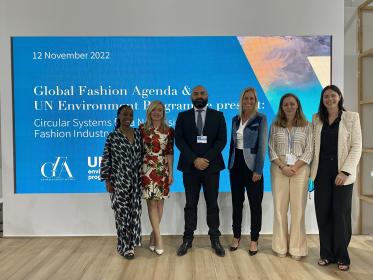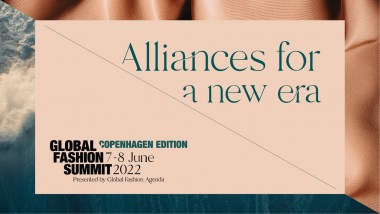Global Fashion Agenda: 2023 edition of The GFA Monitor
Global Fashion Agenda (GFA) released the 2023 edition of The GFA Monitor — a report to guide fashion leaders towards a net-positive fashion industry. The second GFA Monitor has been updated to include the latest guidance and insights from over 25 industry organisations in one cohesive publication. For the first time, the report includes new data insights from the Fashion Industry Target Consultation - drawn from over 900 industry participants in 90 countries.
The GFA Monitor is an extensive resource that presents expert insights on the status of the industry, clear actions to take, and proven best practices. In a time of poly crisis when the implementation of sustainable practices is challenged, GFA is supporting the industry by consolidating an abundance of available solutions that can be applied today.
The tool is grounded by the sustainability framework laid out in the Fashion CEO Agenda, featuring in-depth guidance according to the five sustainability priorities: Respectful and Secure Work Environments, Better Wage Systems, Circular Systems, Resource Stewardship, and Smart Materials Choices. Embracing additional expert knowledge from other industry organisations, each priority includes insights from GFA’s Impact Partners: Fair Labor Association, Social & Labor Convergence Program (SLCP), Ellen MacArthur Foundation, Apparel Impact Institute, and Textile Exchange, respectively.
The 2023 publication presents new findings from the Fashion Industry Target Consultation (FITC), launched by GFA and the United Nations Environment Programme (UNEP) in November 2022, which invited stakeholders from across the global value chain to share their thoughts on the performance indicators and milestones that the industry must strive to meet. The FITC indicates a very positive sentiment from participants, but action and positive impact from that action is yet to be measured. Overall, the data reveals that the majority of the 900 participants supported industry alignment on the 27 action areas proposed in the consultation and remarked that they are actively engaging with the industry to drive progress in the respective areas. The report further illuminates the level of industry ambitions per priority and the areas where more aligned action areas are needed.
Global Fashion Agenda



















